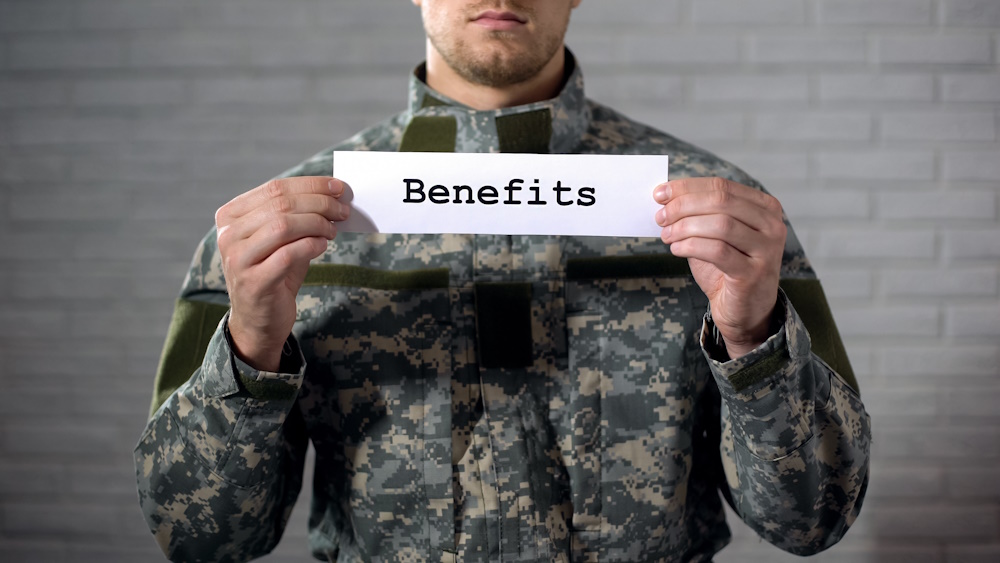Veterans Affairs (VA) Disability Claims provide crucial support for veterans injured or who suffer from conditions related to their time in service. These disability claims, however, often hinge on the veteran’s ability to provide compelling evidence of their condition and its link to their service. Unfortunately, despite the severity of their conditions, many veterans face difficulties in gathering and presenting the required evidence to substantiate their claims, particularly with specific types of disabilities.
Understanding VA Disability Claims
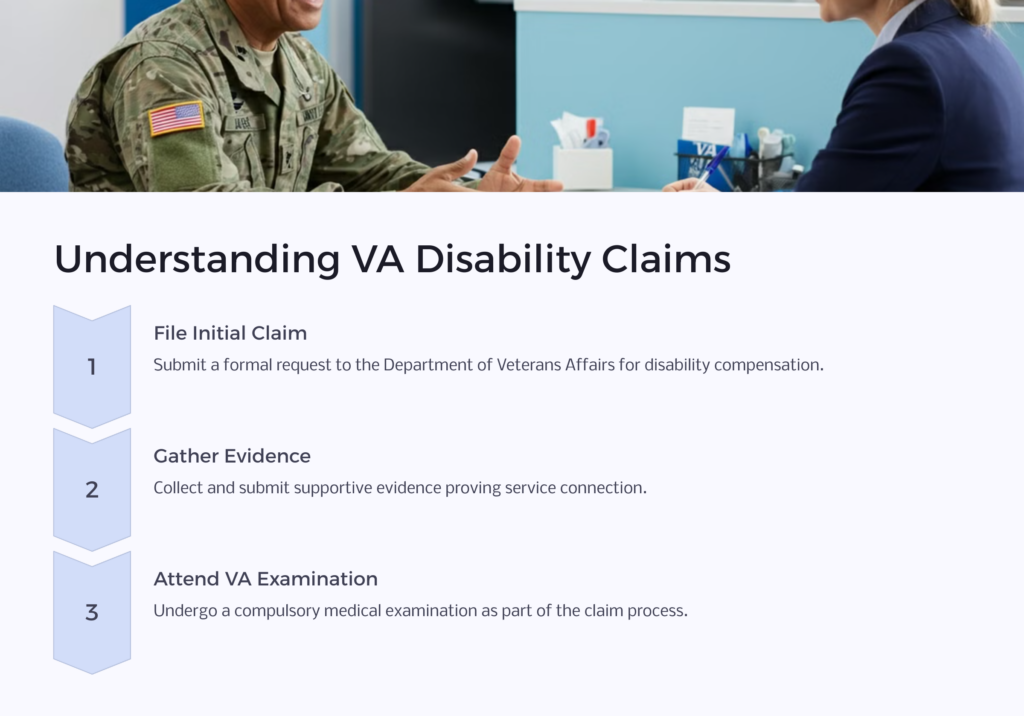
VA Disability Claims are formal requests made by veterans to the Department of Veterans Affairs (VA) for disability compensation. This compensation is meant to mitigate financial difficulties caused by injuries or sickness that occur during or become exacerbated by military service. The critical factor in making a claim is the evidence proving the disability is service connected, or directly resulting from their military service.
The process of submitting a claim involves several steps: filing an initial claim, gathering and submitting supportive evidence, and attending a compulsory VA medical examination. These steps may seem straightforward; however, the ‘service connection’ factor often poses challenges that complicate the process.
Common Unprovable VA Disability Claims
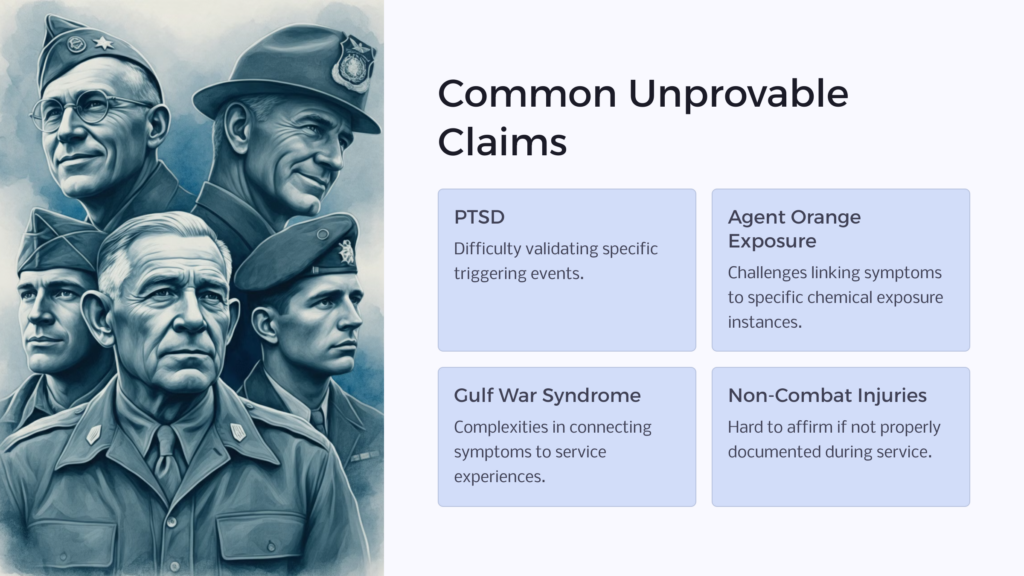
Several types of claims often prove challenging to evidence sufficiently. These include Post-Traumatic Stress Disorder (PTSD), exposure to Agent Orange, Gulf War Syndrome, and non-combat-related injuries. All of these conditions share the common challenge of proving the direct link between service and their subsequent manifestation.
For example, veterans with PTSD may struggle to validate the specific event or series of events that triggered their condition. Similarly, veterans exposed to Agent Orange or suffering from Gulf War Syndrome face difficulties in conclusively linking their symptoms to specific instances of chemical exposure. Non-combat-related injuries or illnesses may also be hard to affirm if they were not properly documented at the time of occurrence.
Challenges in Proving Certain Claims
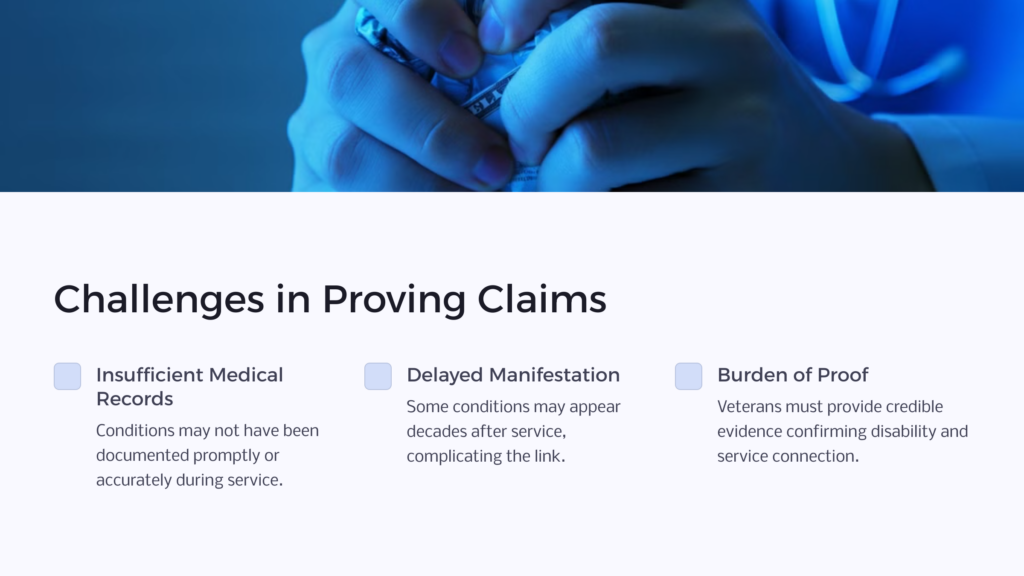
The substantial hurdle in these “unprovable” claims is often related to the sufficiency and credibility of medical records. In some cases, veterans’ medical conditions may not have been documented promptly or accurately during their service. Alternatively, some conditions may manifest decades after military service, making it difficult to exhibit that direct link back to the time of service.
Understanding the Burden of Proof
In the context of VA disability claims, ‘burden of proof’ refers to the obligation resting on the claimant, in this case, the veteran, to substantiate their claim. They must provide credible evidence confirming their disability and demonstrating that it’s service connected.
The VA provides some leeway with the ‘benefit of the doubt’ concept, where the VA weighs all evidence for and against the claim. If the evidence is approximately equal in weight, the VA gives the ‘benefit of the doubt` to the veteran, enhancing their chances for a successful claim.
Gathering Evidence for Claims
Gathering robust evidence is central to the success of an application for disability benefits. Veterans should consider obtaining a personal medical record that can provide clear medical evidence of their condition.
In addition, “buddy statements” or “lay statements”, which are testimonials from those who served with the veteran or know them well – can provide valuable supporting medical evidence. Personal diaries, logs, and other contemporaneous records that can validate the service connection may also be considered.
Moreover, engaging the services of a VA lawyer or accredited representative can be invaluable in navigating the often complex and frustrating claims process.
Overcoming Unprovable Claims
There are several strategies available to veterans to navigate these challenging claims. Both medical and lay evidence can be immensely powerful, particularly in the absence of sufficient medical records. The right evidence can get you a high enough VA disability rating to turn your ‘unprovable’ claim into a successful one.
For disabled veterans who have received a denial, a VA appeal can be launched with new and substantial supporting evidence. When pursuing an appeal, developing a comprehensive strategy that addresses the reasons for the initial denial can make a significant difference.
Resources for Veterans
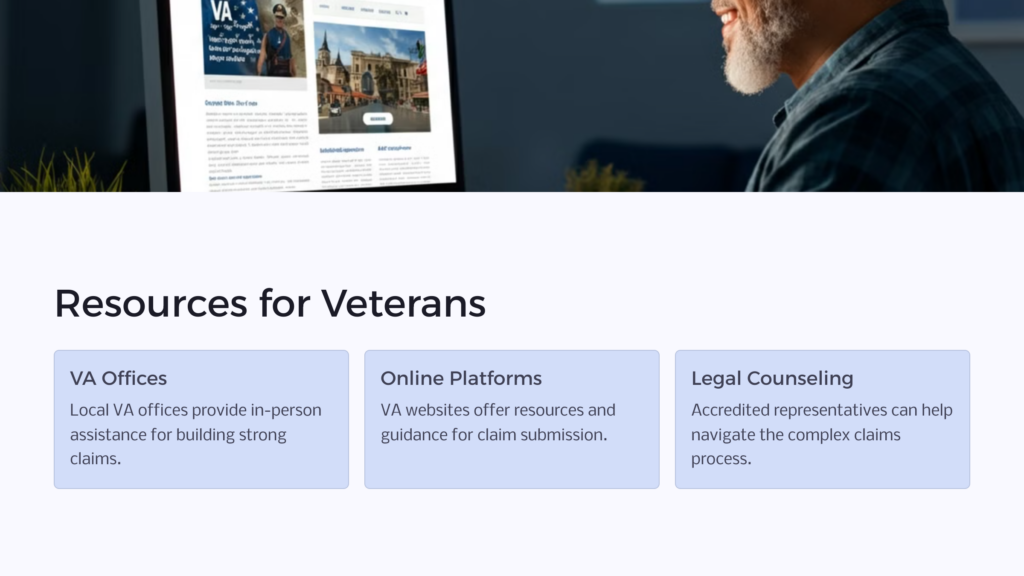
Numerous resources exist to assist disabled veterans in navigating these challenging claims. The VA provides assistance in building a strong claim through available resources in VA offices, online platforms, and legal counseling.
Veterans with ‘unprovable’ claims are strongly encouraged to take advantage of these resources to develop robust and comprehensive claims.
Conclusion
Unprovable VA Disability Claims represent a significant challenge for many veterans seeking VA disability benefits for their service connected conditions. However, with the right preparation, solid evidence, and awareness of the available resources, these hurdles can be overcome.
The key to navigating these complex claims is understanding the importance of gathering compelling evidence, acknowledging the challenges of the ‘burden of proof,’ and harnessing the support of available resources to build a strong claim.
 Benefits.com Advisors
Benefits.com Advisors
With expertise spanning local, state, and federal benefit programs, our team is dedicated to guiding individuals towards the perfect program tailored to their unique circumstances.
Rise to the top with Peak Benefits!
Join our Peak Benefits Newsletter for the latest news, resources, and offers on all things government benefits.

















